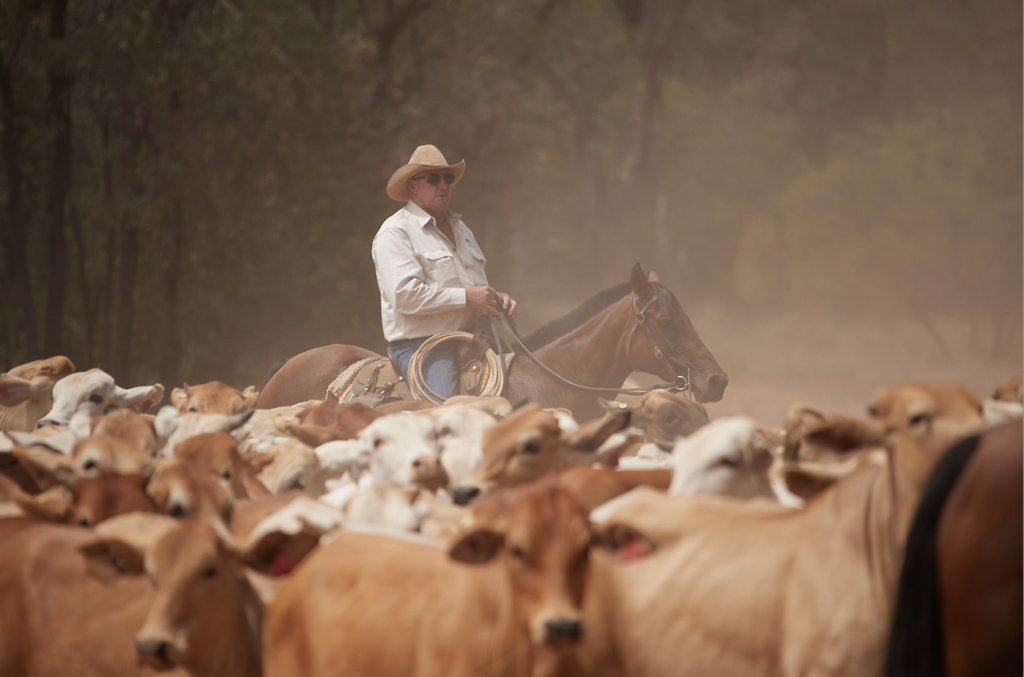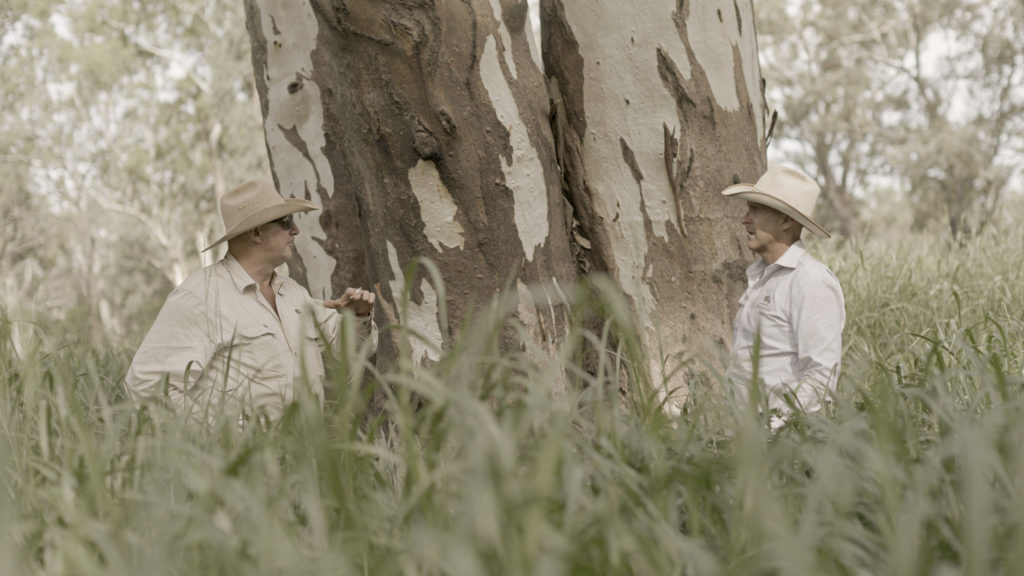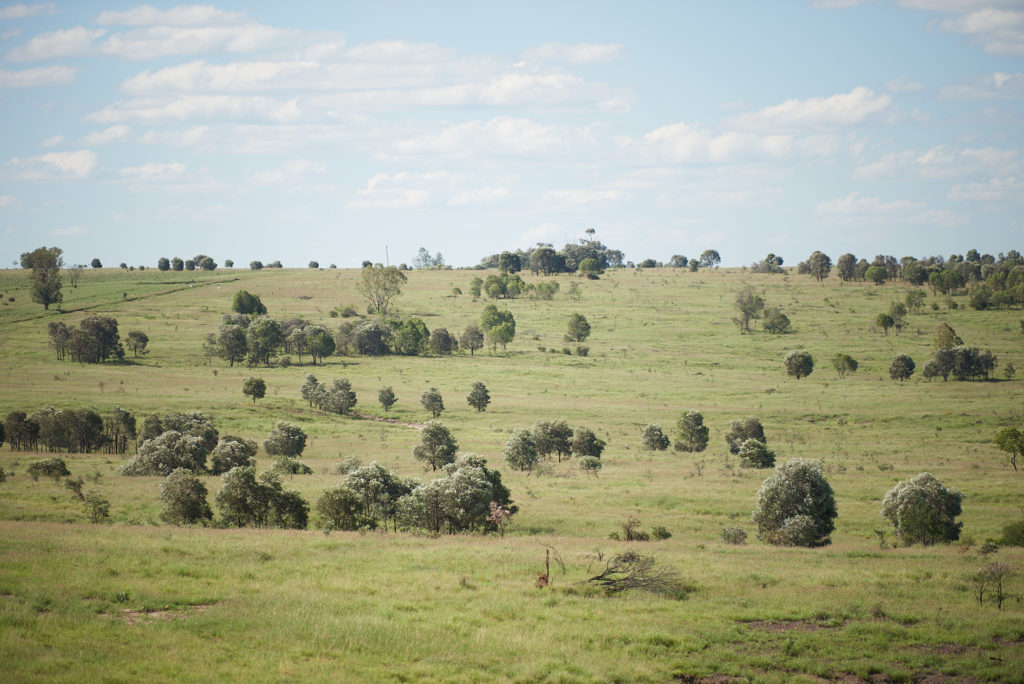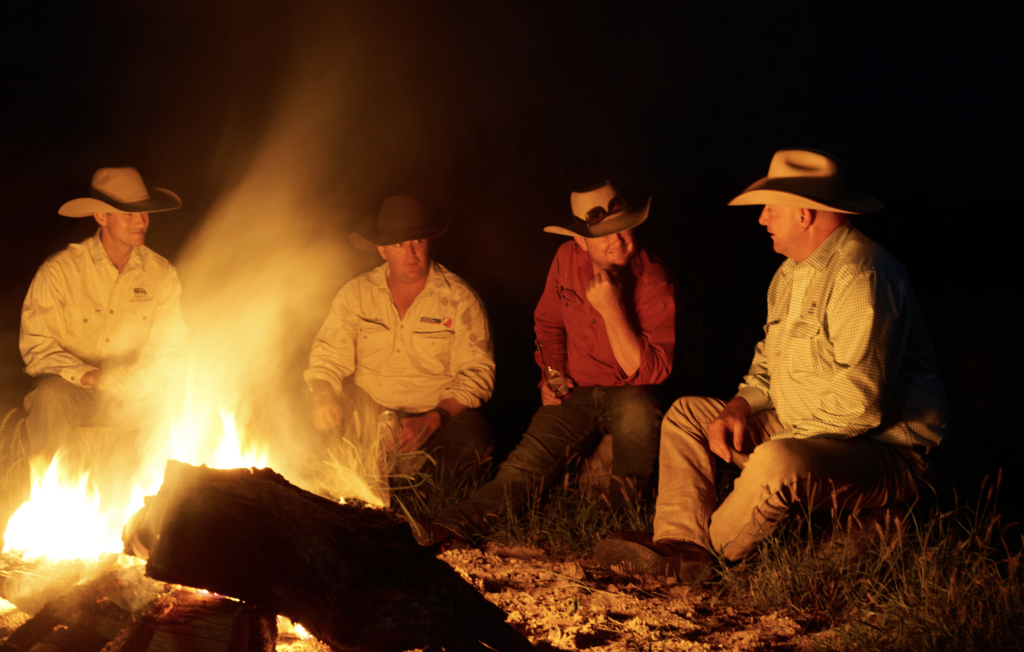You’ve had a life-long connection with the land, tell us about your experiences growing up in North Queensland and Tasmania, and how that’s led you to your career to date.
I was fortunate to have been brought up on the land, in fact it was 70,000 acres in North Queensland, halfway between Richmond and Winton. I moved to Tassie when I was 12 and finished high-school there, but I had known from a very early age that I was going to be on the land.

Following a succession of applications to the major pastoral houses in Northern Australia, I was fortunate to get a start with AMP Stanbroke as a jackeroo, then spent the next 20 years with Stanbroke in Queensland and the Northern Territory developing the skill sets required to manage large scale properties. I was involved in the transition of AMP Stanbroke to the new Kidman & Co ownership at Helen Springs in the Northern Territory and managed this asset for 8 years, before joining Macquarie Bank’s start-up, Paraway Pastoral as General Manager for its Northern Australian Operations.
I saw a major opportunity through Paraway to influence the growth and success of corporate agriculture and during my decade with Paraway, our team built a $1.3bn property portfolio.
The culmination of my career is now Packhorse, bringing my deep knowledge of commercialising pastoral land and skills in cattle management to a wider team of experts in funds management and regenerative agriculture. I feel fortunate to be able to offer investors the opportunity to address land restoration through our model.

How are you utilising your expertise and skills in pastoral care, land management and financial investment to build Packhorse?
The transition in management from Stanbroke to Kidman was pivotal for me. I could clearly see a bigger opportunity for corporate agriculture in Northern Australia which meant putting the levers of the financial business back in the hands of managers on the ground. This involved upskilling, providing them autonomy to make business decisions and letting them be nimble, which became a catalyst to making these big operations profitable.
My career with Paraway was incredibly valuable in that it exposed me to all aspects of agricultural investment from compliance and governance to understanding the return metrics for investors.
Ultimately, agricultural land is about wealth creation and at Packhorse we are focused on educating our investors about this very attractive asset class and the long-term returns it has proven to generate over time.
How do you see regenerative agriculture impacting the rural farming communities in Australia now and into the future?
The fact is, our planet is getting warmer, so regenerative agriculture is going to impact rural farming communities globally. It’s a process that creates more groundcover and a cooling impact on soils, which in turn has a positive impact on soil health and climate.
At Packhorse we see ourselves as custodians of the land with a responsibility to adopt new pathways to rejuvenate and heal this degraded land. Regenerative agriculture enables us to be sustainable in the industries we want to establish, and to enable ethical and clean food production for future generations.
Another major benefit of regenerative agriculture is the role it plays in increasing carbon levels in soil which may provide a further benefit to Packhorse investors by giving them exposure to Australian ACCUs.
Australia has a great reputation for the quality of its beef, however, trade negotiations with China are resulting in decreased demand, how will this impact the supply chain for Australian beef? Are there other opportunities?
If we look at the macros here, we can see that our current production systems are not going to keep up with population growth over the next 40 to 50 years, which means we are not going to be able to produce enough protein to feed all the people on the planet.
There is increasing global demand for natural, grass-fed beef and China trade negotiations have not yet impacted prices when you look at our domestic market today and our pricing overseas. We have a shortfall in producing the quantity of protein that is in demand so that’s going to bode well for the markets. We are in a hot period of the market and while there may be a softening, this certainly isn’t going to be significant in my opinion. We see the industry remaining buoyant for the foreseeable future.

What are your criteria for consideration when selecting land to purchase?
We’ve got a staged approach to building the Packhorse business.
Stage one which we anticipate will take 5 years to execute, is to purchase land within a radius from Brisbane that offers freight efficiency for feed lotters and processors and beef producers in general. This country sits in a radius from Tambo and Roma in Queensland down to the Victorian border. This band of country is highly productive, has a mix of cropping and improved pastures with some native grazing along with historically reliable rainfall. Our strategy is to acquire properties that has freight efficiencies and are likely to offer productivity levels required to ensure supply chain throughput. This land generally also has some of the better black soils that lend themselves to regenerative practices and improved pastures.
A major focus in stage one is purchasing properties with opportunity to improve existing infrastructure, fences, water, yards to maximise capital appreciation.
What is the major change you’ve seen in rural agriculture?
The obvious answer for me is technology. The ability for individual animal recording allowing us to understand what’s happening to the herd on an individual animal basis, is remarkable.
Secondly, there is significant change in the regenerative space where landowners are beginning to recognise that grass is their bank account and it is essential to manage the grass and soils correctly. This has been a long-term shift but some of the big climatic events over the last decade have shone a light on the need to focus on the grass ahead of the livestock. I’m not saying this is easy, many financial institutions have created a financial scaffolding making it difficult for farmers to put the environment first, as banks require an income stream from the cattle. But we are starting to see a shift and a better balance on what’s right for the environment and our production systems.
Then there is the people aspect of our industry. We are seeing an increase of tertiary educated young people entering the industry and the stock camps to build their grassroots knowledge. This generation understands the power of regenerative agriculture to impact climate change and the environment this may be a significant driver for the uptake of pastoral related occupations among this group. It’s certainly a welcome change and will help lead the industry into the future.
Tell us about how you get the best out of people to achieve maximum business outcomes?
It’s a cliché but it’s true – any organisation is only as good as its people. At Packhorse we identify skillsets and empower people by giving them autonomy and accountability for different facets of their role.
At Packhorse the focus is on ‘we’ and encouraging collaboration to achieve the best business outcomes. We provide the resources to develop skillsets so that our people operate at optimal levels, and if you are a Packhorse employee you know you have the support and development plans to operate in the top 25% of the industry.
What is your vision for Packhorse?
We are building a world class land and cattle business that we are custodians for which provides environmental outcomes for our communities and our climate.
The beauty is that there is no end date to this, we keep building the business in accordance with investor confidence. Our motivation lies in the environmental and financial returns we can deliver to investors thanks to our ‘mass-scale’ capability and environmental outcomes.
Soil Carbon Sequestration is a by-product of our regenerative processes. We are confident that we will achieve carbon neutrality for the business in 2028, which would place Packhorse as arguably the world’s largest single entity owned soil carbon project.

IMPORTANT: The information on this webpage is general information only and does not take into account the objectives, financial situation or needs of any particular person. An investment in Packhorse Pastoral Company (Australia) Limited (Packhorse) is subject to risk and is restricted to sophisticated investors. Applications to invest in Packhorse must be made on an application form attached to or accompanying the information memorandum for the offer. Investment decisions should not be made upon the basis of past performance, which is not a reliable indicator of future performance. No person, company or entity makes any promise or representation or gives any guarantee as to the performance or success of Packhorse, the repayment of capital or any particular rate of income or capital return. To the extent permitted by law, Packhorse and its associates, and any of their directors, officers, employees, representatives and advisers are released from any liability (including, without limitation, in respect of direct, indirect or consequential loss or damage arising by negligence or default) in relation to any anything contained in, or omitted from, this webpage.
Packhorse Securities Pty Ltd (AFSL 524630)
Packhorse Investments Australia Pty Ltd (AFS Representative 1293433)
